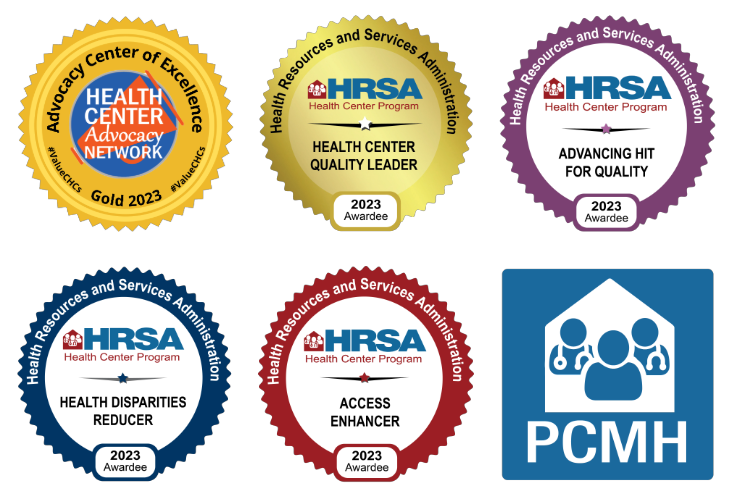
Review this Preconceptional Checklist to get off to a healthy start as you plan your pregnancy. Use this checklist to discuss with your physician any special medical needs or concerns that you may have. We want to work with you from start to finish to create healthy beginnings!
Preconceptual Visit
A preconceptual visit allows you discuss with your physician issues important to planning a healthy pregnancy.
Family History
Certain conditions occur more commonly in families including diabetes, hypertension (high blood pressure), epilepsy (seizures), mental retardation, and twins. Other disorders can be inherited and are called genetic disorders. Genetic disorders include thalassemia, Tay-Sachs disease, sickle cell disease, hemophilia, muscular dystrophy, cystic fibrosis, Huntington chorea, and Fragile X syndrome. Some genetic disorders can be detected before you are pregnant.
Medical History
Some medical conditions require special care during pregnancy (examples: diabetes, epilepsy, high blood pressure).
Past Pregnancies
A review of you obstetric history is a crucial part of preconceptual care. Some problems will recur, but most do not. Previous problems can alert your physician that you may need special attention during a future pregnancy.
Medications
Some medications can affect the developing fetus and should be avoided when pregnant. If you are taking certain medications, you may need to be changed to others before you attempt to get pregnant.
Lifestyle
Diet
A healthy, balanced diet is an important part of maintaining your health. It is even more important when you are pregnant. Your doctor can provide you with specific information. It is recommended that you start taking a prenatal vitamin before you get pregnant. Prenatal vitamins contain folic acid (0.4-1.0 mg) which can reduce the risk of neural tube defects (spina bifida).
Special Needs
Women who are vegetarian, anemic before pregnancy, or have other conditions which affect their nutrition should contact their doctors for special dietary information. Women with a previous pregnancy affected by a neural tube defect should take10 times more folic acid than the routine recommended dose. A dose of 4 mg every day as a separate supplement is given starting one month before conception and during the first 3 months of pregnancy.
Weight
Maintenance of proper weight is important for good health. Pregnancy can be complicated by diabetes and high blood pressure in women who are overweight. Pregnancy in underweight women can lead to low-birth weight infants.
Exercise
Ideally, it is important to be in shape and follow a regular exercise routine before you become pregnant. To achieve cardiovascular fitness, you need to exercise at least three times a week.
Substance Use
Tobacco, alcohol, and illegal drugs can cause harm to both you and a developing fetus. For your own health and the health of your baby, the best time to quit or at least cut down is before you get pregnant. It is difficult to quit a habit. Contact your doctor for suggestions and resource referrals.
Environment
Some substances used in the work place can affect pregnancy. If you are planning on becoming pregnant, it’s important to look closely at your work environment. Radiation is used in some jobs. Exposure to high levels of radiation, can affect pregnancy. The amount of radiation in a chest x-ray will not affect fertility or pregnancy.
Infections
Infections can be harmful to both the mother and the fetus. Some infections can cause serious birth defects or illness in the fetus. Some infections can be prevented by vaccination (examples: measles, mumps, rubella, polio, and tetanus). Sexually transmitted diseases (STDs) can also affect pregnancy. If you suspect that you may have a STD, see your doctor to be tested and treated.
Later Childbearing
Most women in their mid-thirties and older have healthy pregnancies. Some special questions arise for women regarding pregnancy. A woman’s fertility gradually declines in the mid-thirties and beyond. As women get older, certain medical conditions and obstetric problems occur more often. Another concern for older women is the increased risk of birth defects. Women over the age of 35 are usually offered genetic testing. It’s important to be aware of these risks.
Questions? Feel free to contact us.
